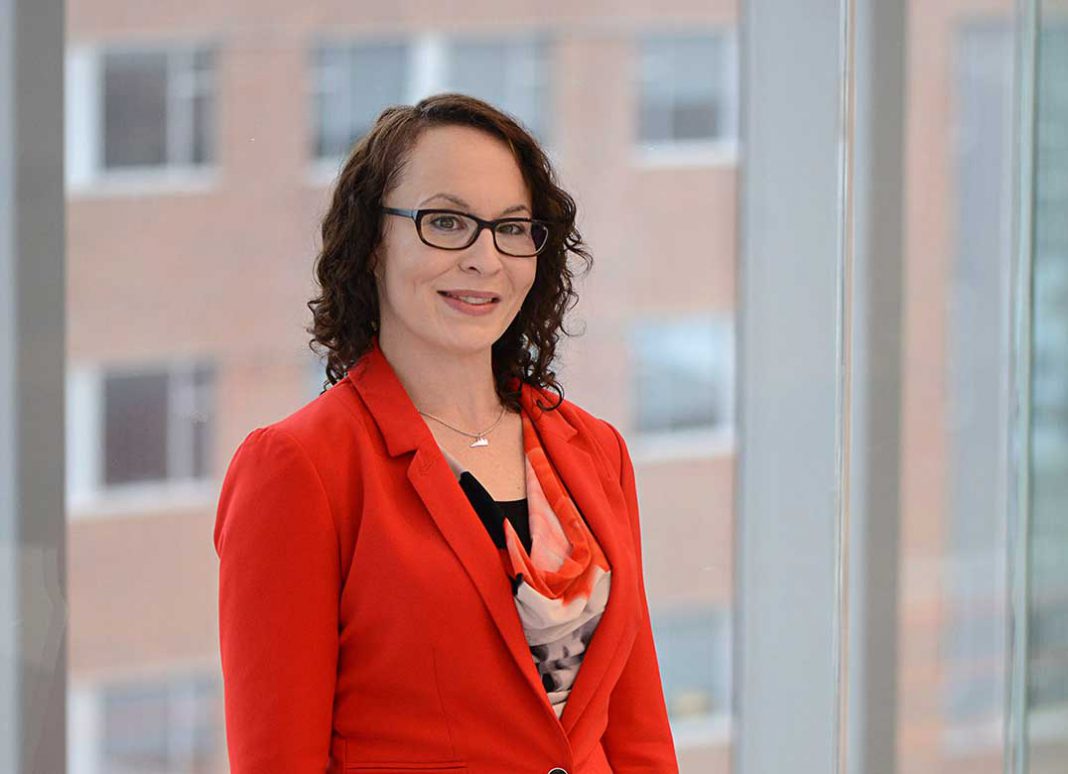KANSAS CITY—A former Gore Bay registered dietician is now pursuing her PhD in medical nutrition science at the Alzheimer’s Disease Center at the University of Kansas Medical Center (KUMC).
“This program is fantastic. The people are fantastic and the city is really great,” says Brooke Noble, who has since moved to Kansas City. “Everyone is so helpful and friendly. They go out of their way to be helpful, which is kind of like Manitoulin. It reminds me so much of home.”
Ms. Noble’s journey to this point has been far from straightforward. During her high school years at Manitoulin Secondary School (MSS), she had decided that spending four years in school was something she did not want to do. After finishing her time there she enrolled in a year-and-a-half long college program studying physiotherapy and occupational health assistant.
“I worked as that for two years on the Island. I liked it, but I found I needed a bit more of a challenge,” says Ms. Noble.
She needed to upgrade her high school credits in order to apply to a university. By that time, the high school system had significantly changed. There was no longer an Ontario Academic Credit (OAC) year and changes to the curriculum left Ms. Noble feeling unsure of her ability to teach herself the paper-based distance education courses she required in university-level math, chemistry and biology.
“I decided to go back [to high school] for a semester in my early 20s. Then, I went to university after that,” she says.
As she started her life once more as a high school student, her life was changed by tough news from her family.
“A week back into my upgrading, my mom was diagnosed with cancer. That was an extremely challenging time in my life,” says Ms. Noble.
It was more than just the assignments and emotional toll that weighed on her. She also had to help support her family throughout the experience.
“I definitely lacked sleep; I didn’t always do well on tests and I stayed up all night doing assignments. My parents ran a restaurant (Twin Bluffs) and I was the only kid around managing the restaurant when they had to go away to chemo treatments,” she says.
Ms. Noble also had to work shifts in the restaurant and her sister would come in from Sudbury to work in the kitchen.
Undeterred, she managed to get her credits and was soon enrolled at Western University to study a double major of nutrition and kinesiology. She became a dietitian and worked in that field on Manitoulin for seven years. She has worked at all Island Family Health Teams (FHTs) and the medical centre in Gore Bay. She has also spent time at the Manitoulin Centennial Manor and the Espanola Nursing Home and Family Health Team, among others. She says that’s what inspired her next move.
“I gained lots of experience in all sorts of conditions, but especially aging, and I felt pretty helpless when it came to being able to help them through nutrition. Families would ask me what to do nutritionally, but there is not a lot of information out there about how we could help somebody with Alzheimer’s Disease,” Ms. Noble says.
At this point, she had been working the equivalent of one-and-a-half full-time jobs and had decided to start completing a master’s degree online in nutrition. She says she felt that having a master’s without a thesis component would not give her enough benefit, but online students are usually not permitted to conduct studies of their own.
However, she had already completed most of her classes and had detailed plans of what she wanted to study. She was granted permission to run a clinical trial—a rigorously designed study—on Manitoulin Island in collaboration with the FHTs to assess different types of programming. Ms. Noble would go on to win an award for that study, but she was not done with her education yet.
In August 2017, she was accepted into an American PhD program and moved to Oklahoma to work with an advisor on her studies. Unfortunately, that advisor left the school shortly after her arrival. An old professor put her in contact with a gentleman doing a study on Alzheimer’s and a fad diet at KUMC. She has now been studying with him since June 2018.
The program is quite small and can be individualized based on a student’s interests. Her education is funded through a scholarship and she says the people she works with remind her of home.
“The content is great. I’m getting to do exactly what I want and everyone has been really willing to help. A lot of the time at this higher level, people are competitive and a bit closed off to sharing their study data, but I don’t find people here are like that,” she says. “We all help each other and work together and collaborate on our work.”
Now that she is hitting her stride, Ms. Noble pauses to reflect on her years of hard work and good fortune that have brought her to where she is today.
“I feel very, very lucky because I’m working with such a great group of people that are very well known in Alzheimer’s research. Our work is having a big impact and I’m really happy they’ve accepted me as part of their team. I hope I can have an impact on at least reducing the rates of Alzheimer’s Disease,” says Ms. Noble.
“Hard work really pays off. When I was in high school, I didn’t think I’d ever go to university,” she says. “Every step of my journey has been made possible by the support of my family—all my siblings and parents. I am very blessed to have such a great support system behind me.”





